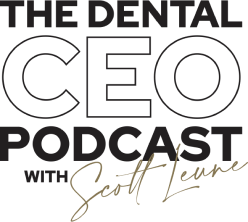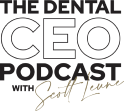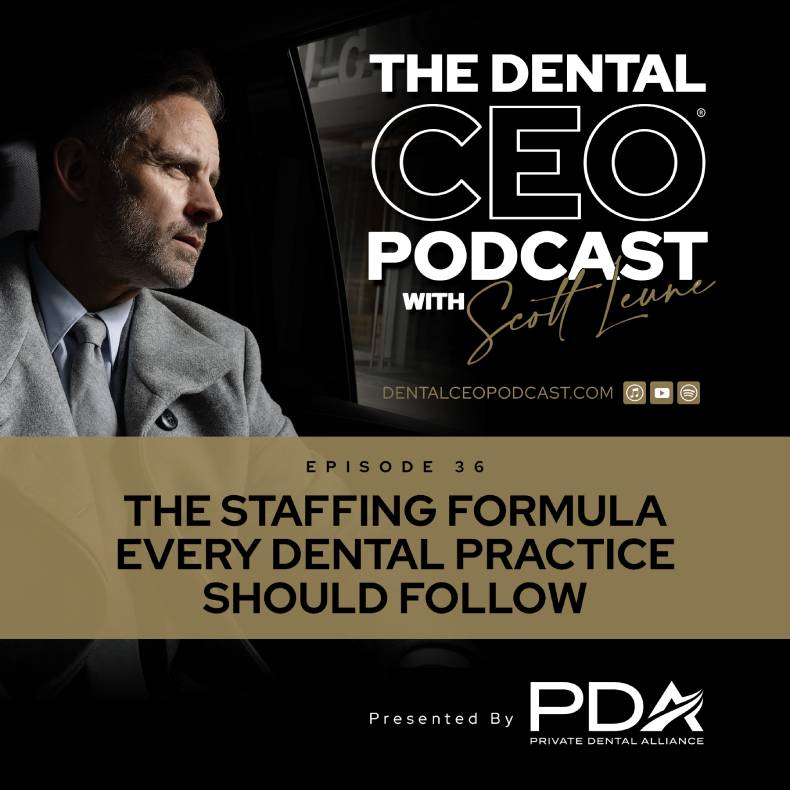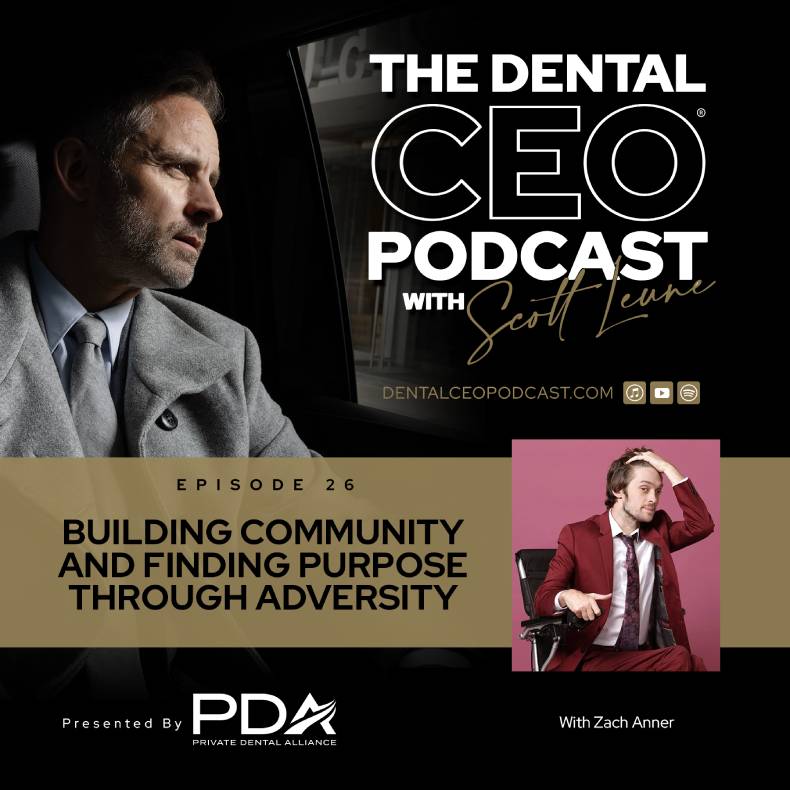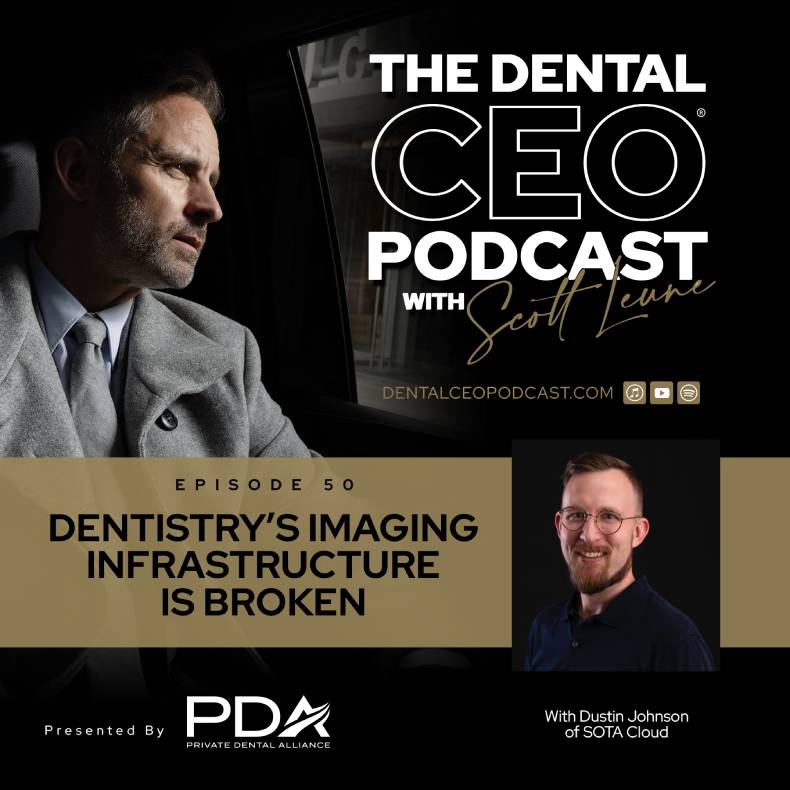Dental CEO Podcast #32: Dentistry Outside the US: Lessons from Global Markets
In this episode of the Dental CEO Podcast, Scott Leune explores the global landscape of dental business opportunities, highlighting the potential for growth and innovation outside the US. From Europe to Canada, learn how adopting American business models can transform dental practices worldwide.
Highlights
- Global dental business trends and the US model’s influence on markets in Europe, Canada, Australia, and New Zealand.
- Case studies of international dentists achieving rapid growth with US business strategies.
- Entrepreneurial opportunities for dentists seeking expansion in Europe and beyond
- Actionable advice for studying and adopting advanced US dental business practices.
Speakers
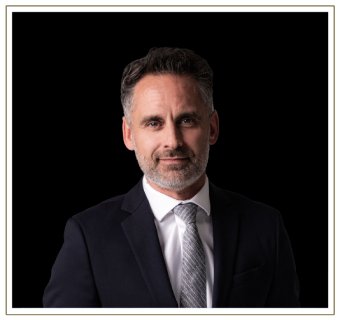
Dr. Scott Leune
Scott Leune, known as The Dental CEO, is one of the most respected voices in dental practice management. From his seminar room alone, he has helped launch over 2,000 dental startups and supported more than 20,000 dentists across practices worldwide. Named one of the 30 Most Influential People in Dentistry, Leune delivers practical, no-fluff strategies that empower dentists to lead with confidence, scale efficiently, and achieve real personal and financial success.
Watch Episode
Read Full Transcript
Scott Leune: So what's the business opportunity in dentistry look like outside of the us? What's happening in Canada? What's happening in the UK or in other parts of Europe? What's happening in Australia, New Zealand area? What's going on and is there something we can learn from that? And actually this podcast episode isn't just for the American dentist wanting to know what's it like everywhere else. This podcast episode might actually be more for the dentist in Europe or the dentist outside of the United States. Lemme put it that way. We are going to talk about the trends we're seeing in dentistry and the business opportunities outside of the US and what should we learn from that and more in today's episode of the Dental CEO podcast.
So a long time ago, maybe 15 or 20 years ago, I was invited to speak in Australia and I was invited to speak to this small group of about 20 practice owners, and I'm not going to name the name of the group, but they essentially represented some of the top people in dentistry in Australia and in that group were the founders of what eventually became one of the largest DSOs or dental groups in the world. And it was kind of put together in that room. Also in that room are people that today own some of the largest continuing education companies in the world. And what was interesting to me is I was brought in to talk about United States DSO dentistry and I came in and spoke about that and what was basically what I realized back then was Australia was about 10 years behind, if I had to guess about 10 years behind the US on the development of the business side of dentistry.
So the US had already had Heartland and Aspen and Pacific and the other DSOs forming. They weren't massive yet. The laws had kind of been tweaked and contracts have been tweaked and structures have been created and private equity funding was happening and even employee stock option plans were part of this and Australia and that group was trying to learn from the US how do you guys do it? Because at the time Australia had not been consolidated yet, meaning outside of a random practice owner maybe owning a couple locations, you didn't really have groups. Now today, Australia is of course much farther ahead than that and there's several large groups, even publicly traded groups, they're operating in Australia and New Zealand. From there, the next kind of frontier that happened, well, it was the US first from my standpoint at least then it was Australia and New Zealand.
From there it went into Canada and I believe that one reason why it did is because a major Australian based DSO went to Canada and so there was this whole kind of wave of consolidation happening in Canada and the DSOs trying to proliferate there. Also, the Canadian market is very similar to the US market, to Australian market. When you look at the types of dentistry or how you fund companies or general laws of practice, there's a lot of similarities between those countries. After Canada, then it kind of trickled into the European market, UK and then other western European nations, Germany, France, so forth. And so where we are today is this really cool opportunity for non-US dentists. The US remains kind of five to 10 years ahead at least of everyone else. When you look at the development of the business side of dentistry. And so in a way it's like if you live in France, you get to kind of look at the US and the US is like a crystal ball showing you the future.
For example, France not that long ago, started having hygienists not that long ago and then there's a ramp up. You got to train people to become hygienists, they got to graduate at hygiene school and then practices have to hire them and then you have to learn how to use them. Well, if French practices were to study how hygiene is done in the US whether it's assisted hygiene model or unassisted, whether it's hygiene independent practices or not extensive perio therapies and modalities and different protocols, there's so many things that they can learn, they will be much better off if they learn that now. And that is kind of one example of how foreign, when I say foreign dentists outside the US should be flying into the US taking business courses in the US to try to get a headstart on what's happening in their countries. One example of this is he was a young dentist, came maybe five years ago or so to one of my events.
He's from Ireland out of respect for him, I haven't asked him if I could mention him or his company, so I'm not going to, but he came from Ireland and took a bunch of our business training events and he told us in Ireland at the time at least most dental offices had one or two operatories or surgical rooms and they would do two or $300,000 a year in revenue or so. And so what he did is he went back to Ireland and kind of took the Americanized model and opened practice with that. The Americanized model had more rooms than that. The Americanized model did more marketing, Americanized model, had a different patient experience, had a different kind of facility. And when I say by the way, Americanized model, I mean the latest model. I don't mean practices that are in old dumpy facilities from 40 years ago, but I'm meaning if you were to build a new practice in the US today, what would that look like and how would it operate and how would it market?
What would it do? He took that and went to Ireland and very quickly that practice he built wasn't doing two or $300,000 a year. It went to 2 million in a year and then he took that practice and opened another location and it went to 2 million and another location and now I don't know exactly how many locations he has maybe around a dozen locations that are open or maybe a couple of 'em are under construction. And this is a dentist that is now today in, I think in his early thirties, they've opened up surgical training facility as well and they continue to send all of their kind of key leadership new hires to the United States to learn the Americanized model of dentistry, including going to all of my seminar events and learning on the business side. This has been a massive win for him financially.
If I had to guess, literally he has become probably 10 to 15 times more wealthy in his career than if he had never gone to the US if he had never gone to, for example, to our event, we didn't do this for him, he did this for himself, but that was one of the ingredients that led him down this path is going to that event. Had he not studied American dentistry, he'd be one 10th or even less than net worth in his career than he's going to be. I've got another dentist I was coaching in France and he had a couple locations and he was trying to implement things like bonus systems and again, trying to implement hygienists and implement different ways of presenting finances, different ways of using technology. Those countries, while they're so advanced in many other areas of life and in business for whatever reason, they are not as advanced.
Typically when you look at the business model of dentistry compared to what you find in the United States, for whatever reason, the United States is highly advanced in the business side of dentistry. I can't say the same for the clinical side. I think that the US has got to be in the top layer of the world, I think when it comes to the clinical side, but there are so many other countries and so many other dentists that have just incredible clinical skills and how they're trained and what the dentistry they do. And so I don't mean to act like the US is better than everyone, but the US is more mature and advanced on the business side and right now, for example in France, you don't have this huge proliferation of DSOs. I remember meeting a dentist in Switzerland and because of the laws and the taxation in some of those countries, putting a DSO like structuring it and building it in one country and then have it expand to other countries was a massive, massive financial windfall.
You look even in Canada, which was kind of one of the earlier countries to expand with DSOs, there's still a massive opportunity in Canada. In Canada right now. Dentists make more money, they make a higher percentage as an associate, they have higher fees. Also, patients pay for the lab work. The dentist doesn't necessarily pay for all that lab work. It is easier to get funding and while yes, certain parts of Canada might have a little bit elevated cost of living, there's plenty of parts of Canada that don't. So it is like this beautiful sweet spot to be incredibly successful financially in Canada. Canada also doesn't have some of the hardships that we face in the US when it comes to insurance and the lower fee participation. Canada also has a decent government subsidizing aspect of dentistry that we don't see in other countries. Canada is a massive opportunity today, the US is as well, so the US is so big, so vibrant on the business side, so many things happening that there's a lot of ways to be successful in the us but if we think globally, my take home message for this podcast episode is that if you are not living in the us, you need to study heavily the business side of dentistry in the US and it'll be so simple for you to pick up on all the things that are different and all those differences.
You get to then decide: do you want to implement it in your organization in your country. I wish that existed when I was building PROEs earlier in my career in the us. I wish I could just go fly to another country and learn things from the future, learn things that have been developed and perfected so that I didn't have to be part of the group, creating it all from scratch and messing it all up and learning from that. So that is where you're at. I'd say I've mentioned some countries, but you can look at South America, you can look at the Middle East, be in Lebanon and be doing things differently based on what you learned in the United States that will help create a wonderful business opportunity for you. Now, of course, every country has different nuances. When you look at South America for example, you've got much lower fees, you typically have a different involvement with the government.
Sometimes there's issues in dealing with corruption or not or just city ordinances and things that make it difficult to open another location. Sometimes there's dental laws that impact how you do it, but you, you've got to deal with all those issues anyway. Whether you learn new ways of running the business or not, you are going to be able to dance around those issues and still do very well if you learn and educate yourself more on the business side of dentistry in the United States, my son, I've got five kids, my second oldest, he's 16 and my middle kid's 13, and they're really kind of serious about being entrepreneurial. I mean, my middle child's 13 and he's making 50 bucks an hour right now doing his own thing, 50 bucks an hour as a 13-year-old. They're very entrepreneurial and both of them would probably move anywhere in the world to kind of as a phase of their life, as a phase of their career.
And if I had to do that, if I had to start fresh and if I had to say, okay, where can I make a lot of money? Where can I make a lot of money in dentistry? What could I do? I'd seriously consider taking what I know about US dental business and applying it to Europe. And the reason why I say Europe is there's a lot of commonalities between European dentistry and the United States dentistry from business perspective, but Europe really is just lagging behind. The US experienced a wave of a cosmetic dental boom 15, 20 years ago. I don't know if anyone's old enough to remember Extreme makeover with Bill Dorfman and Zoom whitening and instant orthodontics is what they called veneers, right? And that whole boom when CareCredit came on and help patients finance things. That all happened decades ago and we're starting to see that happen.
Now in the last five years in Europe, patient financing hasn't been around in Europe for decades, whether it's in-house financing or third party financing. You don't see in Europe kind of the more complex and mature strategies around hygiene using hygienist for production, for clinical care, of course also for case acceptance. That's not really there in Europe. You don't see on the macro level, you don't see a lot of entrepreneurial people in dentistry taking advantage of large funding sources to roll out brands, roll out multi-location brands. In the US you've got people doing just full arch on a brand or just petto or just sleep dentistry, just holistic dentistry. In Europe, you don't even have as many just regular general dentistry brands out there, so there's this huge opportunity to do so, and because of the way Europe is structured with the eu, there's ease of doing business across borders, but also because there's borders, there's opportunities where things are slightly different from one border to the next or from one side of the border to the other side of the border that I would really consider looking at the entrepreneurial side of dentistry in Europe.
I probably need to do an event in Europe. I'm a Dutch citizen. A lot of people don't know this, but I was born and raised as a child in the Netherlands. I was born in Amsterdam and I came over permanently to the US when I was 11 or so. I speak Dutch, of course, I'm speaking English right now and I can't speak anything else, but I'm so tempted to maybe do some business training in Europe, in London or maybe Amsterdam, maybe in Germany somewhere. I don't know. I'm curious. I know that you might be just listening to this, but if you are not living in the US or Canada right now, would you be interested in being trained on the Americanized business systems? If we were to do events in Europe, I would love your feedback. I'd love for you to shoot us a message or post a comment or something like that because I think it's the right thing to do, but I need some confirmation of that and it's hard to get that. I don't know you, but if you can post something, if we get enough of those posts that will probably tell us, you know what? Let's figure this out. Let's go do it. Because I would love to be able to teach outside of the US and Canada. I'd love to be able to teach the day-to-day business processes of running a dental practice, but then more than that, the expansion strategies, the funding strategies, having multiple dentists, having multiple locations, like all of those things as well. I think it's a huge opportunity. Anyway, so to kind of sum this episode up, and I know this is an unusual topic, but no one talks about this. I felt like let's do one episode where we start making the wheels spin. What I see I have always seen and I continue to see is the way us does the business side of dentistry is years ahead of everyone else, for better or for worse years ahead.
Yeah, actually, let me say that too. For better and for worse, we're years ahead. The good trends are years ahead and the bad trends are years ahead. And so if you're not in the United States, you need to study and understand that you could have built a billion dollar company in Australia. Had you studied this 15 years ago, you could have built a hundred million dollars organization in the UK and in Ireland had you studied this five years ago. So those are the opportunities. Most of you listening to this aren't trying to build a hundred million dollars or even 50 million or even 10 million. You're just trying to do the best you can with your one location in South Florida or wherever it might be. But someone listening to this podcast does want to do something that's 10 or a hundred million or shoot even more than that, and someone listening to this podcast currently makes what you make doing what you do in another country outside the us.
Maybe it's time for you to fly into the US and get trained or convince us to fly to you. We had a dentist that came to one of my events about a month ago from Israel, and he wasn't allowed to leave the country. No one could leave the country in Israel right now with a conflict going on. He had to actually smuggle himself out of Israel to Jordan and then fly from Jordan to the US and he attended two of our events. That's a lot of risk, that's a lot of trouble, that's a lot of money, and it was well worth it for him. If you're in a place where you can just fly in and you don't have to smuggle yourself through a third world country, then maybe it's time you do. So get trained on the Americanized version of dentistry for better and for worse, and you will go back and you might see opportunities you've never seen before. You might add a whole nother zero to your net worth or two zeros to your net worth, or at least the game you play if you just get the right information. Alright, I hope this was interesting for you guys. I appreciate y'all support and I will see you next time. This is Scott Leune on the Dental CEO Podcast.
SUBSCRIBE TODAY
Subscribe now and receive a 25% discount code for Scott Leune’s upcoming events. Plus, get podcast episode alerts and exclusive subscriber perks.
